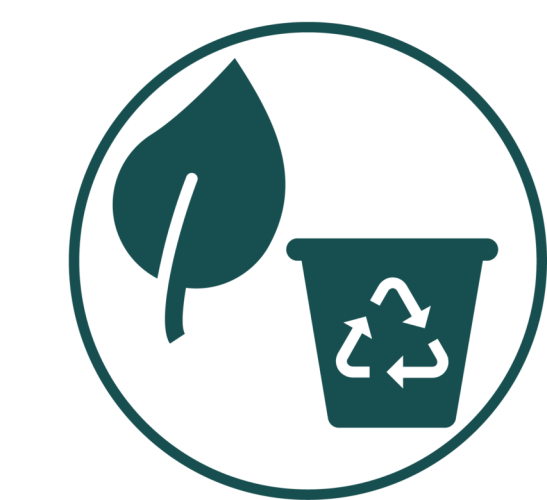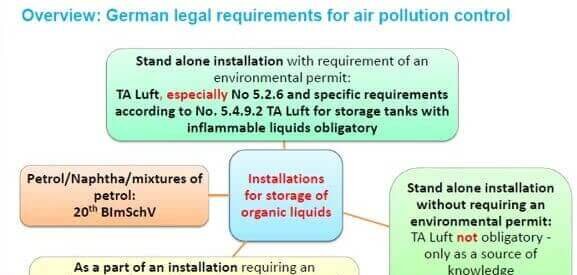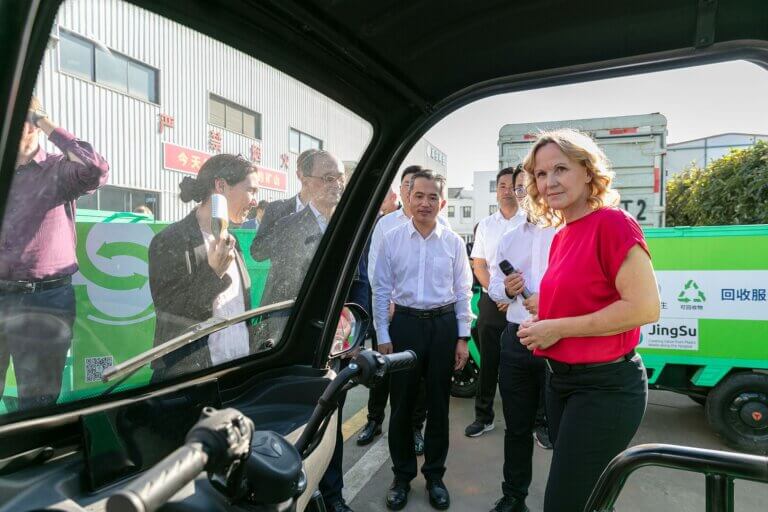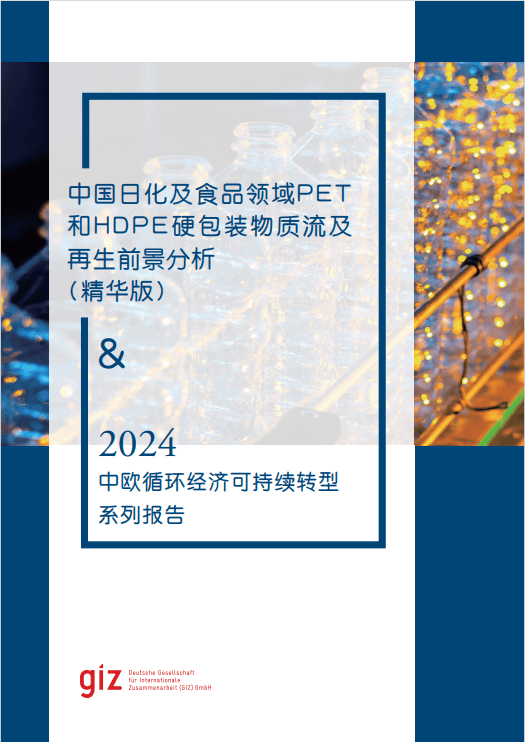The 2nd VOC Series Training was successfully organized online on Nov 15, 17, and 18. The event was co-organized by GIZ Sino-German Environmental Partnership Project and the Foreign Environmental Cooperation Center (FECO) of China’s Ministry of Ecology and Environment (MEE). Participants are mainly policymakers and researchers relevant to VOC emission prevention and control, with a diverse background such as the Department of Atmospheric Environment of MEE, Chinese Research Academy of Environmental Sciences, Foreign Environmental Cooperation Center, China Academy of Environmental Planning, Appraisal Center for Environment & Engineering, and Tsinghua University.
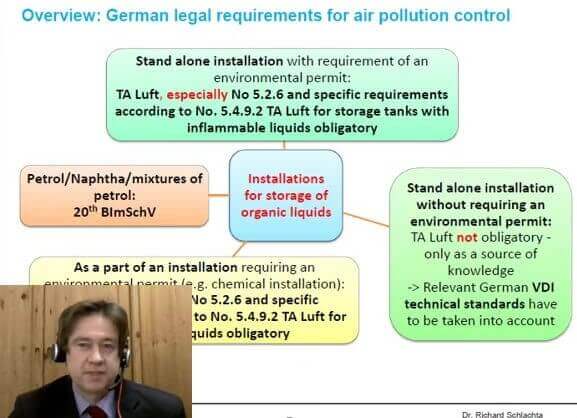
Dr. Richard Schlachta, the Head of Department ‘Technical Environmental Protection’ from the District Government of Upper Bavaria delivered comprehensive and detailed presentations on the legal framework and policy actions of VOC emission control system, organic VOC waste gas management system, and source alternative management system in EU/German.
The first day gave an overview of the German VOC control system for liquid storage tanks and loading and unloading, focusing on petrochemical and chemical installations and oil storage tank farms. On the second day, Dr. Schlachta dived deep into the German organic VOC waste gas treatment facility management system and German organic VOC waste gas emergency exhaust management system while highlighting the petrochemical, chemical, industrial coating, packaging, and printing industrial installations. Finally, the third day focused on the source alternative management system for products containing VOCs in Germany. Topics such as the VOC storage system, incentive and punishing policies around VOC management, and the measures from the perspectives of enterprises, were also touched upon during the discussion sessions.
As one of the main contributors to air pollution, VOC has drawn significant attention in China over the past few years. It was the second VOC Training co-organized by SGEP and FECO; the first one was held last year. The exchange of German expertise and best practice of VOC emission control in this workshop will contribute to the Chinese VOC emission control policy iteration in the longer run.
